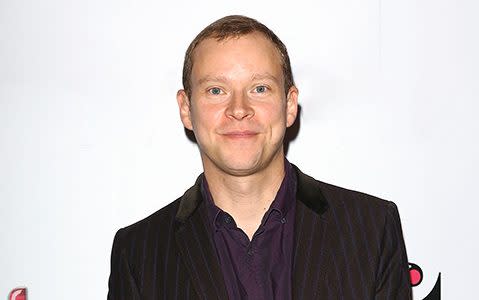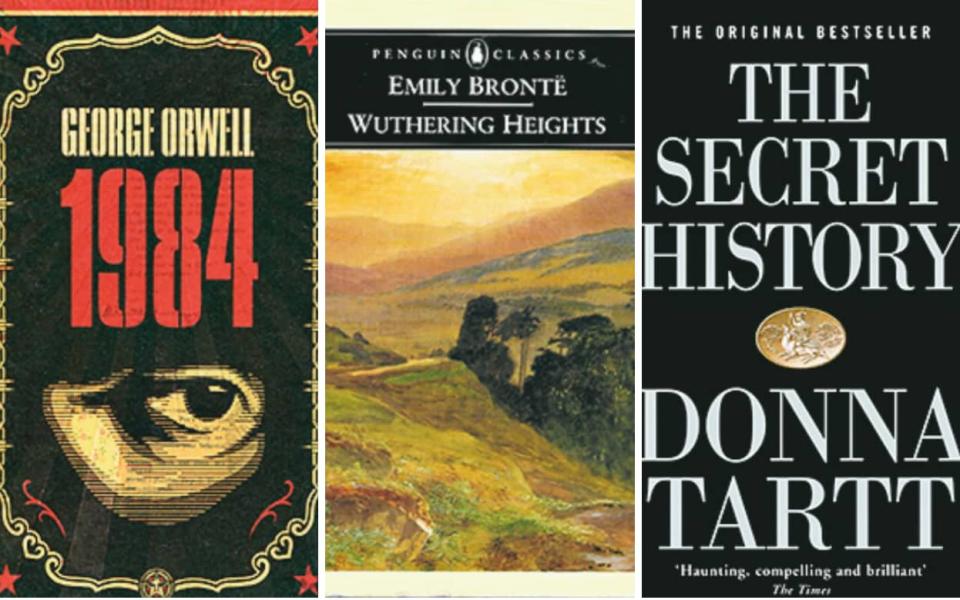Robert Webb: 'Novelist' still sounds too posh for me


The comedian, actor and writer, 47, lives in London with his wife Abigail and two daughters, Esme, 10, and Dory, eight
When I was a kid, I mainly wanted to be a superhero, but that gave way to ambulance driver and finally, when I was 13, a comedy actor and writer. ‘Novelist’ didn’t really come into it because it just sounded too posh for me. It still does, to be honest. But I was writing stories before I was writing sketches – usually on scraps of paper that I stuck together and called ‘my book’.
I wrote about my mother’s death in [my autobiography] How Not To Be a Boy. Exploring that time when I was 17 and framing it in my own words was certainly helpful. It’s really the only time I’ve faced what happened with any clarity. The idea for my novel actually came first, but How Not To Be a Boy overtook it. I wanted to write novels, but needed to get the memoir out of the way first. This time it was great being able to make up characters and not worry about the feelings of real people: the freedom was joyful at times but also intimidating. With a memoir, you want some sense of progression, but nobody really expects a proper story. And certainly not an ending. Obviously with fiction, you need an actual plot.
The main character in Come Again travels back in time to freshers’ week. That was probably one of the most nerve-racking but exciting weeks of my life. I’d gone to enormous trouble to get into Cambridge University and I could scarcely believe that I’d managed it. What isn’t clear at the time is the mad lottery of it: one moment you’re furiously trying to bond with someone you’ll scarcely speak to again; in the next you might sit down next to someone whose children will have play dates with yours. I’ve set the time-travel part of the book to October 1992 because that was my own freshers’ week. It was fun remembering all the sounds, sights, clothes and music.
I’ll carry on acting as long as anyone wants me to, but my agent will tell you I’m getting quite fussy.
I’m constantly amused by writers who claim to have these elaborately structured writing days: ‘I rise at 5.42am and eat half a bowl of dry lentils with gooseberry coulis before an hour of yoga with a scented candle up my bum and then I’ll write for 82 minutes but only the adverbs…’
Look, I’m marginally sharper in the morning. That’s about it.
Robert's life in six books

1984 by George Orwell I read this when I was 13, which I think is too young. Quite apart from the rats, I had a fascination with the idea that you could make a concept disappear by banning the word.
Wuthering Heights by Emily Brontë I read this when I had the flu once and I still don’t know how Brontë got me to care so much about Cathy and Heathcliff who, let’s face it, are the kind of couple you’d move house to avoid.
The Secret History by Donna Tartt I loved the idea of being part of a super-cool and witty clique of friends. I’m not sure if I was ever part of a gang like that, but at least we didn’t kill anyone.

Emma by Jane Austen My favourite Austen. Mrs Elton’s treatment of ‘Knightley’ was a revelation simply because I hadn’t imagined any book this funny could be allowed anywhere near an English syllabus.
Cultural Amnesia by Clive James This should be given away along with Shakespeare and the Bible at the end of Desert Island Discs. A brilliant collection of essays on significant cultural figures of the 20th century.
Waterland by Graham Swift I loved the way this was written, with ideas and words echoing and calling to each other across the length of the book and through the years of the story. Utterly beautiful.


